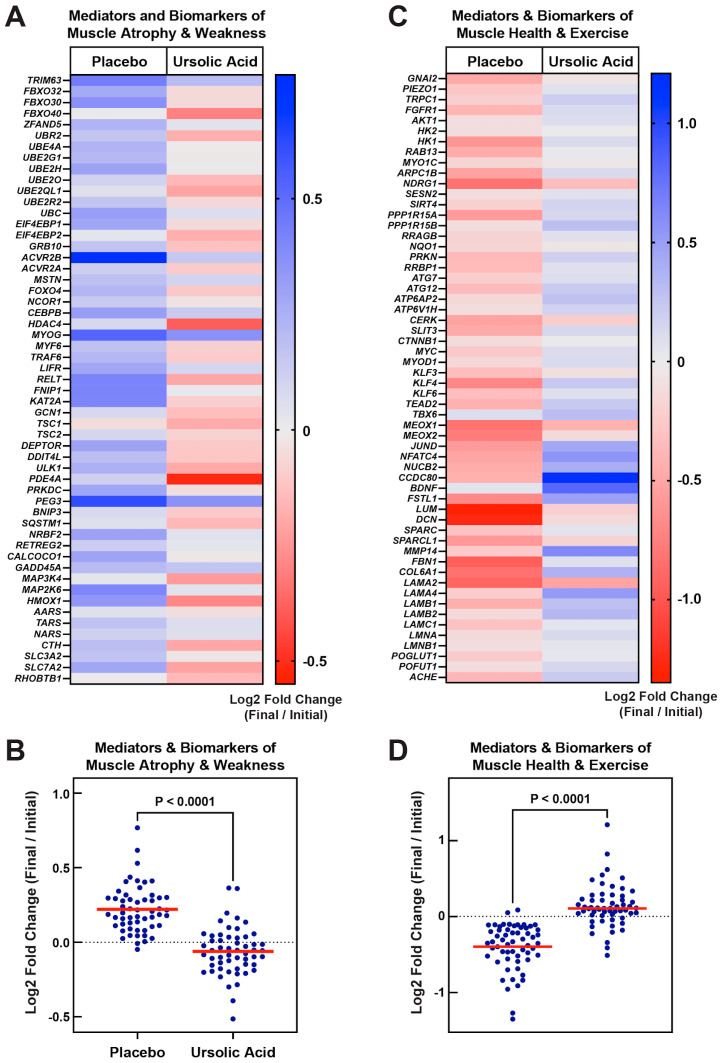Figure 2.
In canine skeletal muscle, ursolic acid decreases mRNAs encoding mediators and biomarkers of atrophy and weakness and increases mRNAs encoding mediators and biomarkers of muscle health and exercise. Older beagle dogs with mild to moderate age-related skeletal muscle atrophy were randomized to receive either one placebo soft chew or one ursolic acid soft chew (24 mg ursolic acid/day) once a day for 60 days. Quadriceps muscle biopsies were obtained from each animal immediately prior to dietary supplementation (“Initial”) and immediately after 60 days of dietary supplementation (“Final”). RNA was then isolated from the muscle biopsies, and log2 fold changes in the indicated mRNA levels were determined in each animal by comparing final mRNA levels to initial baseline mRNA levels in the same animal. Data are from 8 placebo-supplemented dogs and 9 ursolic acid-supplemented dogs. (A,B) Mean log2 fold changes in mRNAs encoding mediators and biomarkers of muscle atrophy and weakness, shown as a heat map (A) and scatter plot (B). (C,D) Mean log2 fold changes in mRNAs encoding mediators and biomarkers of muscle health and exercise, shown as a heat map (C) and scatter plot (D). In (B,D), each data point represents the mean log2 fold change in one mRNA, horizontal lines denote means of all assessed mRNA levels, and p-values were determined by one-way ANOVA with Dunnett’s multiple comparison tests.

